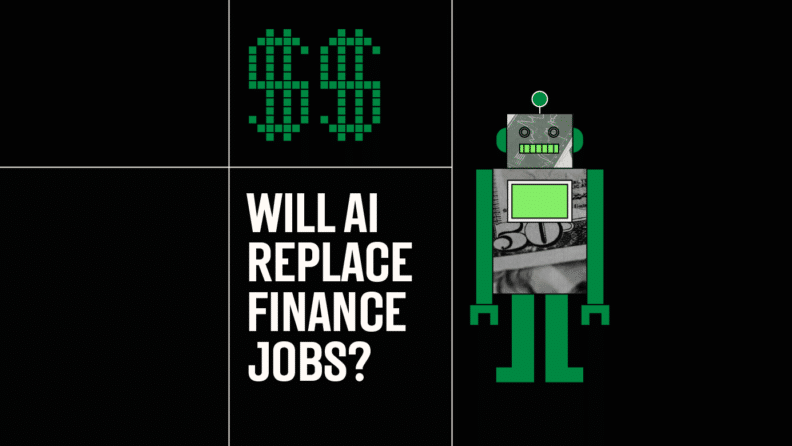In the worlds of Financial Planning and Analysis (FP&A), finance, and business in general, there’s an ongoing debate between CFOs, financial analysts, and many other financial services professionals about whether ChatGPT or artificial intelligence (AI) will replace finance jobs, the impact of AI on job security, and the role of human operators within companies.
While some individuals express concerns that ChatGPT or any other AI tools will replace jobs and pose a significant risk to human intervention, others argue that such technology can be beneficial and complementary to human efforts.
In my opinion, AI will reduce the number of human operators skilled in manual tasks needed in companies and increase the number of human operators working with more advanced skills and more "human" skills like storytelling, communication, leadership, and business partnering.
On top of that, the desire of businesses to implement AI will also increase the number of jobs for people skilled in this technology and other similar areas (such as data engineering, AI prompting, data architecture, and master data management). Overall, I believe the number of workers will increase because of AI.
Here are 2 main arguments in favor of AI replacing jobs in Finance and FP&A, as well as some counterarguments against this.
Arguments In Favor Of AI Replacing Humans
Efficiency and Automation
One of the primary arguments in favor of GPT or AI technology replacing jobs in Finance and FP&A is the potential for enhanced efficiency and automation. AI-powered algorithms and systems can perform repetitive tasks with great speed and accuracy, eliminating the need for manual intervention, for example, data entry.
I’ve seen Finance in various companies within our industry use AI to automate data collection, data cleaning, and some parts of reporting processes, freeing up human operators to focus on more complex and strategic aspects of their roles - like actually analyzing the business intelligence data and generating suggestions on how the business can improve.
Simply put, by streamlining routine tasks, AI can significantly increase productivity and reduce operational costs for businesses. What used to burn time or require the hiring and training of an assistant can now be done with a little bit of (repeatable) prompting and model training.
Advanced Analytics and Generative AI
Another compelling argument for the adoption of AI in Finance and FP&A is its ability to process vast amounts of data and generate valuable insights.
Traditional financial analysis methods may be limited by the human capacity to analyze and interpret data, but AI algorithms can quickly identify patterns, trends, and correlations within extensive datasets. This enables financial professionals to make more informed decisions and gain a deeper understanding of their company's financial health.
By leveraging AI-driven analytics, organizations can improve forecasting accuracy, risk management, and overall financial performance.
One way to do this is through the usage of machine learning for financial forecasting (though this requires a specific oversight framework to be effective).
Another way is through the usage of AI chatbots, either from OpenAI or even Google Bard. These two companies are trying to enable technologies that can take over manual tasks from human workers such as low-level data analysis, bookkeeping, etc.
Counter-Arguments Against Artificial Intelligence Taking Our Jobs
While there are compelling arguments in favor of AI replacing jobs in Finance and FP&A, it is essential to consider the counter-arguments as well. Here are some of the big ones:
Human Judgment and Decision-Making
One of the main concerns about AI replacing jobs in the current job market is the potential loss of human judgment, emotional intelligence, and decision-making capabilities. While AI algorithms can process large volumes of data and generate insights, they lack the contextual understanding, intuition, and creativity that human operators bring to the table.
Certain financial tasks require subjective judgment and critical thinking, which may be challenging for AI to replicate fully. Human professionals can also consider ethical, social, and legal implications that AI algorithms may overlook. Therefore, there will always be a need for human involvement and oversight in finance-related roles.
Adaptability and Flexibility
Another counterargument against the complete replacement of human operators by AI is the need for adaptability and flexibility in dynamic financial environments.
Anyone who’s worked in finance knows that the forecasts, analysis, and models that the business needs are ever-changing, as internal circumstances fluctuate and the market evolves.AI algorithms typically operate based on pre-defined rules and patterns, so a lot of finance professionals think that AI or ML are not flexible enough to use them in certain tasks.
You’re Safe… for Now
AI still has a long way to go before taking all of our jobs but it is up to us as finance professionals to learn about it, evolve our thoughts, and upskill to prevent that from happening.
Financial markets and business conditions can change rapidly, requiring quick adjustments and strategic decision-making. Human operators possess the adaptability to handle unforeseen situations, adjust strategies, and respond to market fluctuations promptly.
Our ability to think creatively and adapt to new challenges remains a valuable asset in Finance and FP&A.
In terms of upskilling, I’d recommend you to start learning some programming languages such as Python, it’s easier than it seems and it is becoming a very valuable skill to have as finance professionals.
So you’re safe…for now. But if you want to AI-proof yourself, upskill and subscribe to The CFO Club’s weekly newsletter to keep on top of updates in this industry!



